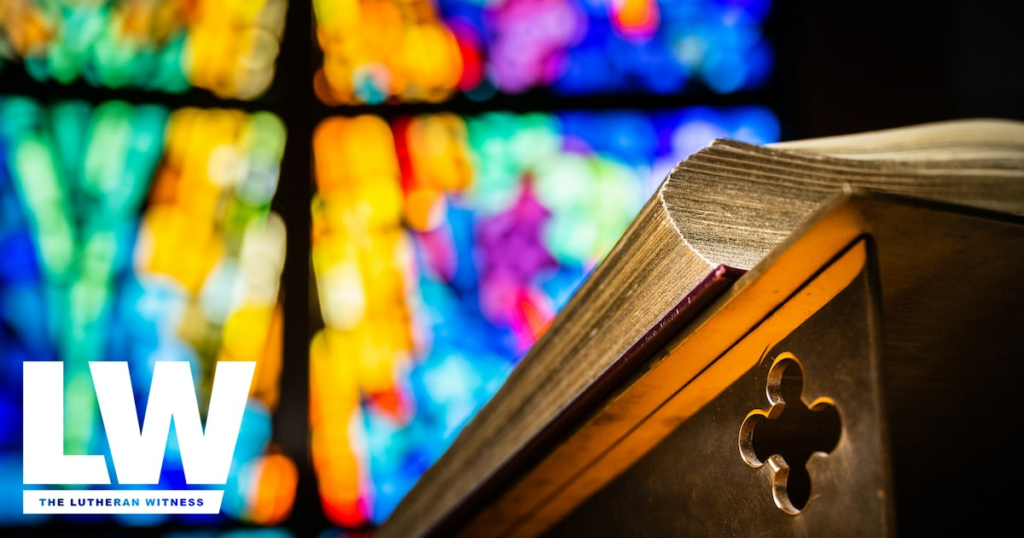by Sandy Wood
Richard Wetzel, Ph.D., is a neuropsychologista neuropsychologist with a Master of Divinity degree from Concordia Seminary, St. Louis.
He teaches in the psychiatry, neurology and neurological surgery departments at Washington University in St. Louis. He’s an authority on suicide prevention. And these days, much of his work focuses on forensic psychology and forensic neuropsychologyevaluating people in civil and criminal court cases, sometimes cases involving the death penalty.
The following is an edited Lutheran Witness (LW) interview with Wetzel (RW):
LW: Is there anything you can tell us about our court system from your work with forensics that we probably don’t know?
RW: The important fact is that almost all lawyers are honest and try hard, almost all judges are able and try to be fair, almost all jurors do the best they can, and groups of 12 are much smarter than any single member because of the differing life experiences they have. Despite all of this, significant mistakes do occur, but rarely, from time to time.
Most Christians believe that all murderers will burn forever in hell, as if forgiveness does not apply to them as much as it does to the rest of us. Most Christians also think that if someone is executed wrongly, God will make it better in the next life. Wrongful execution does not cause salvation. Faith, worked by the Holy Spirit, which leads us to believe in Christ, is the only way. Wrongful execution is not a substitute.
LW: Is there a particular case that stands out in your memory that was really unusual, or one in which the jury’s decision shocked you given your research?
RW: Juries try hard and are usually right. Occasionally, they make very bad decisions because they do not understand. A very small number of people are so committed to evil acts that the jury does not believe they could be that bad.
Many times very bad acts are committed by people who are not really bad but are very foolish and intoxicated. Juries have trouble with that too. Usually, juries are right. The rare exceptions stand out in my memory.
I examined a man who faced and received the death penalty. Since I was working for the prosecution, he did not like me very much. However, while awaiting trial for several years, he became a Christian. He told me that because of becoming a Christian, his years in jail after his conversion were the best years in his life. In the middle of 20 some hours of evaluation, he spent 30 minutes in a wonderful witness to his faith in his Lord Jesus. He meant it, but it did not affect the legal process.
LW: You studied at a Lutheran college and have a divinity degree. What led you to the divinityscience combination?
RW: I grew up near a college campus (Concordia University River Forest, now Concordia University Chicago). When I was young, nine family members were college teachers. My uncle, Albert Beck, a professor for 48 years at CURF, told me it was better to have both a ministerial education and a Ph.D. Then, when I was on vicarage, people kept asking me for advice on problems I did not know the answer to. Psychology seemed the natural way to go.
LW: Do you have a favorite Bible verse?
RW: I like Romans 8; I amend it for myself and my patients that God will have us in
heaven with Him and that neither the devil, nor powers, nor principalities or whatever is bugging them or me most at present can take us away from the love of God.
—
> LCMS WR-HC’s Specialized Pastoral Ministry program trains church workers for counseling people in correctional institutions and other difficult settings.
About the Author: Sandy Wood is an award-winning reporter and editor and member of Chapel of the Cross Lutheran Church, St. Louis, Mo.
February 2012





